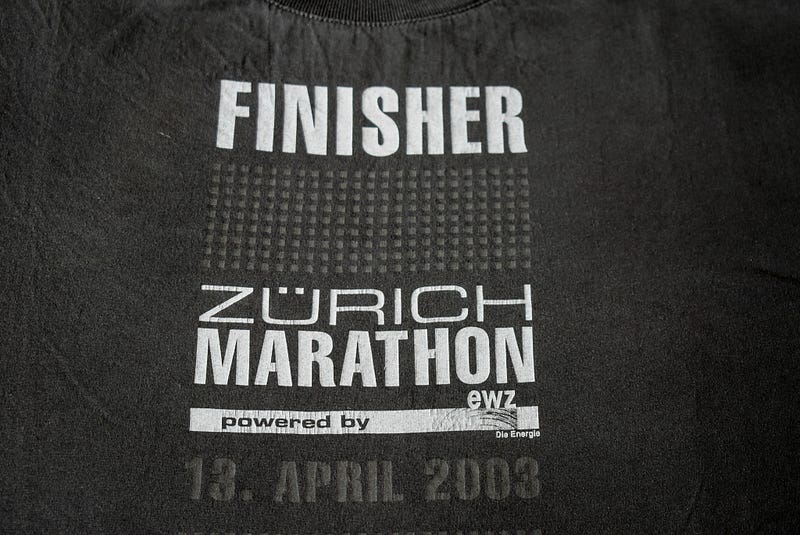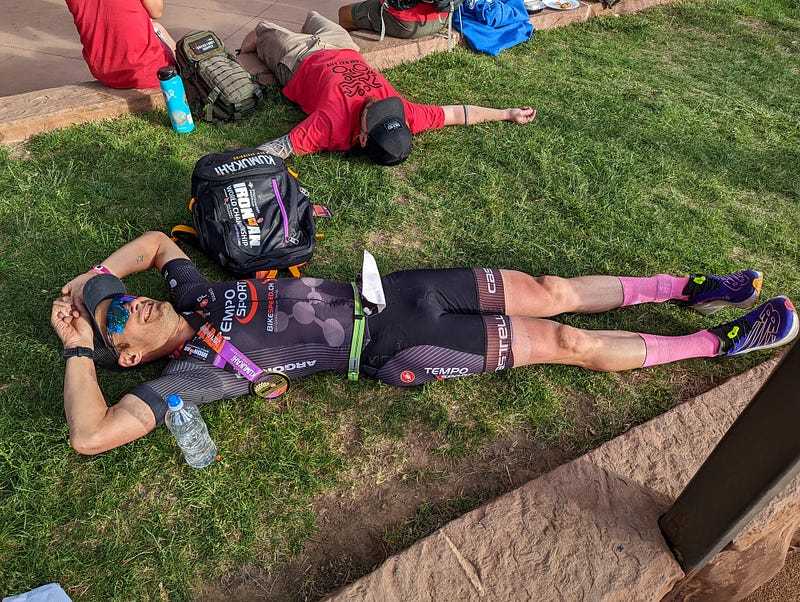What's The Toughest Race in the World?

Greetings friends!
It says something about people that the claim to being the toughest race in the world should be an attraction, rather than a warning to stay away.
I don't think people are crazy or masochistic for participating in such races, although it can certainly look that way to spectators.
No, the appeal of a hard race is not just tackling a challenge head-on but overcoming it. That we artificially manufacture these challenges and put ourselves into them voluntarily does not lessen one's sense of heroism or the genuine accomplishment of successfully completing them.
It is fascinating to consider what makes a race hard, and what types of challenges people voluntarily subject themselves to on their heroes' journeys.
The running references here bring my points to life, but they are just the scaffolding supporting the larger picture. Today's post is also about human nature and what it means to live a good life.

My Own Hero's Journey
Before I describe the candidates for the world's toughest race, allow me to describe part of the hero's journey I embarked on a little over twenty years ago. It will support today's point.
Picture this. I was in my early thirties, sitting in a conference room in New York City. We had just completed the annual meeting of shareholders. Our Chairman looked over at me and said, "It's a beautiful spring day. Want to go for a run in Central Park?"
This seemingly harmless question completely flummoxed me. Because the idea was preposterous, at least for me at that moment. I had no running gear, true. But more importantly, I had no chance of running a single step. Since entering college I had done little more than study and work. Certainly no exercise. And it showed.
I was sedentary, overweight, and out of shape. And I hadn't even noticed it happening. That simple question made me realize my life was playing out in a way I didn't like.
I resolved at that moment to change my life. I said to myself, "When I get back to the office, I am going to start exercising. I'm going to lose weight." My thoughts on how to do this were vague, but the underlying desire was intense.
Long story short, I shed unneeded weight. On the way to looking for an exercise I could do regularly, I stumbled upon running. My first kilometer on the treadmill led to many more.
Within six months I ran my first half marathon, and within a year I completed a full marathon. This just happened to be the inaugural Zurich Marathon held in 2003.

I recall thinking at the time, "Wouldn't it be something to have run the Zurich Marathon ten times in a row? That would mean I managed to stick with my running habit and stay fit for ten years." I assumed that doing so would indicate I truly changed my life.
With little more thought than that, running became an integral part of my life. And marathons became part of my annual race calendar, at least the Zurich Marathon.
I made it to ten years in a row and while that felt great, it was also anti-climactic. Because when you've made fitness a regular part of your life for that long, what are you going to do? Stop?
Hence my decision to keep adding years to the Zurich streak. This year marks another milestone: the 20th running of the Zurich Marathon.

The road over these last 20 years has had its bumps. I've had setbacks, injuries, and disappointments. Due to COVID, the race was virtual for one year and canceled one year. I ran the distance that weekend anyway just to keep my annual streak unbroken.
I've thought a lot about what makes a race tough, which I'll share with you now.
The Dimensions of Toughness
Because we're talking about human endeavors, toughness is measured in all the ways that people may find themselves suffering.
The weather conditions on race day can make an otherwise fine race terrible. Participants run races in the freezing cold and against the biting wind. We've been hot, sweaty, and dehydrated. Driving rain, even falling snow? You bet.

Sometimes a race is awful because there are too many runners and the crowds hinder you from finding your rhythm. Too few participants can also be a burden, because your mind plays tricks when there is no one around you.
I am sure well-meant spectators shouting out "Just keep going! Only X miles to go!" have no idea how demotivating that can be to a runner whose tank has run dry.
Then there are the courses themselves that create extra physical challenges. Running many miles on hard concrete takes its toll. But so does rough, uneven terrain.
Other races take you up and down mountains. Some people participate in Spartan races or "tough mudders," the genius of which is to invent ever more elaborate obstacles to completion.
We must consider also the race distance itself. A marathon is long, but that by itself does not make it the toughest. A 5-kilometer sprint creates a whole new dimension of suffering. And endurance runners have long since eclipsed marathon distances, running races many multiples longer.

This is to say nothing of races that add disciplines, such as swimming and biking, to the traditional run. Or races that take place on successive days – complete a marathon on each continent in seven days, anyone?
The participant's own condition on race day creates challenges no one else may realize. Perhaps one is nursing a nagging injury or is sick that day but cannot bear the thought of missing the race.
So What's The Toughest Race?
In my view, it's something beyond what we've already discussed.
I have to give heavy weight to the following races being among the toughest:
- The race you don't train enough for;
- The race you don't finish; or
- The race you don't start.
The reason these all deserve consideration is that they involve the most painful suffering of all. What's that, you ask? It's the suffering we inflict upon ourselves.

When we line up at the start of a race that we trained insufficiently for, we know we're going to suffer physically. Worse, we know it's our own fault. That's doubly painful.
Dropping out of a race usually is accompanied by significant suffering. But depending on the cause, the decision may not carry regret or even concern. If conditions are dangerous, stopping is the prudent thing to do.
Coming to the race you don't start, we must know the reason why. Was it because you were scared? Because you were sensible? There are many potential motives and only the individual will know what happened.
Considering all the possibilities we've explored, I suggest the toughest race in the world is the one we're all in right now.
It is life itself. And we all know that the finish line is approaching, for some sooner than others.
Are you taking your participation in this race seriously? Are you training yourself to go the distance? How will we meet the adversity that undeniably lies in each of our paths?
What do you think? What’s your candidate for the toughest race?
Whether you look to your fitness to train your body, to your studies to discipline your mind, or to some other source of comfort to aid you in your race, my constant wish for you is this:
Be well.
Hit reply to tell me what's on your mind or write a comment directly on Klugne. If you received this mail from a friend and would like to subscribe to my free weekly newsletter, click here.
I originally published a version of this story on Medium in the publication Runner's Life.






Member discussion